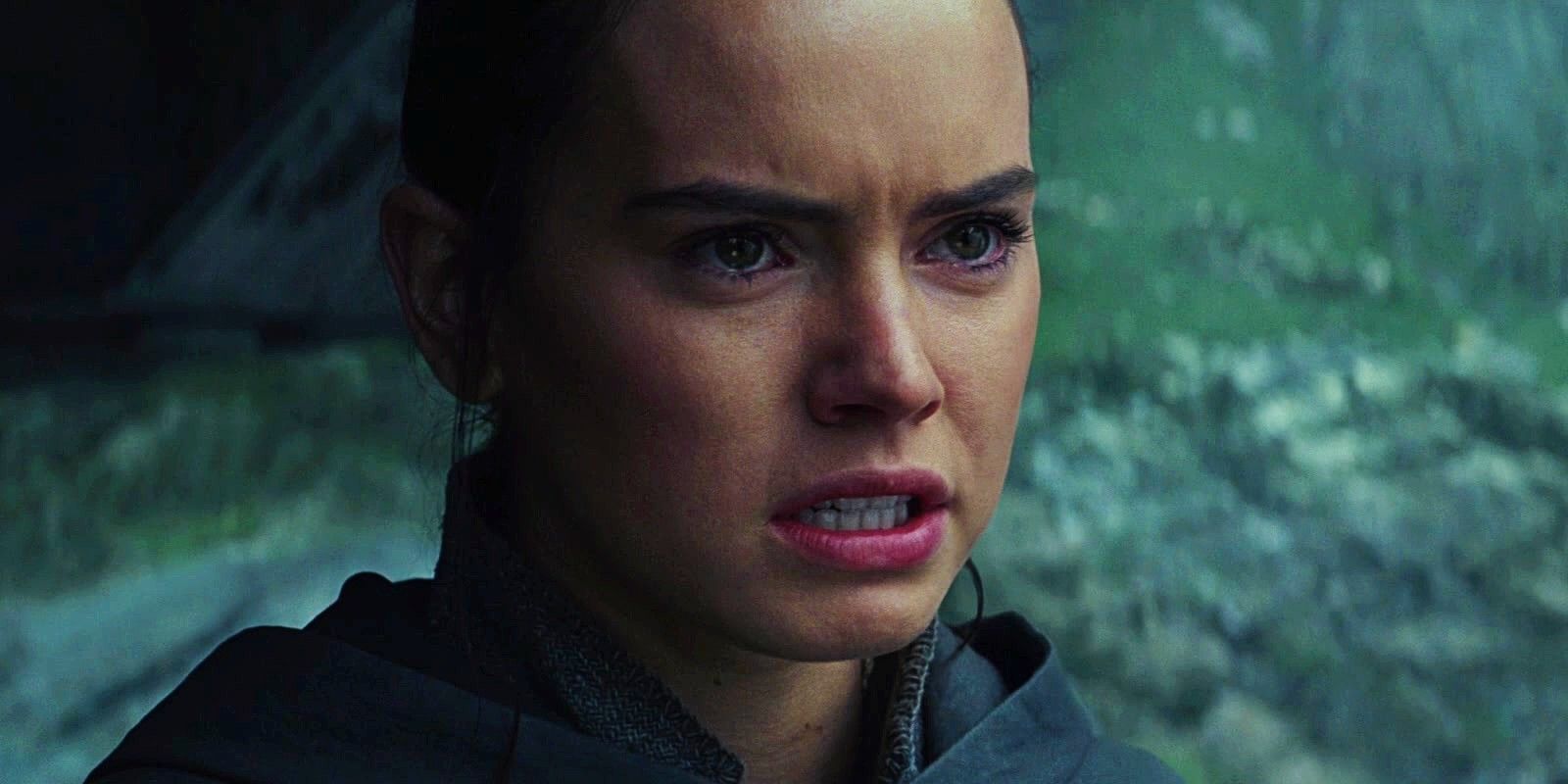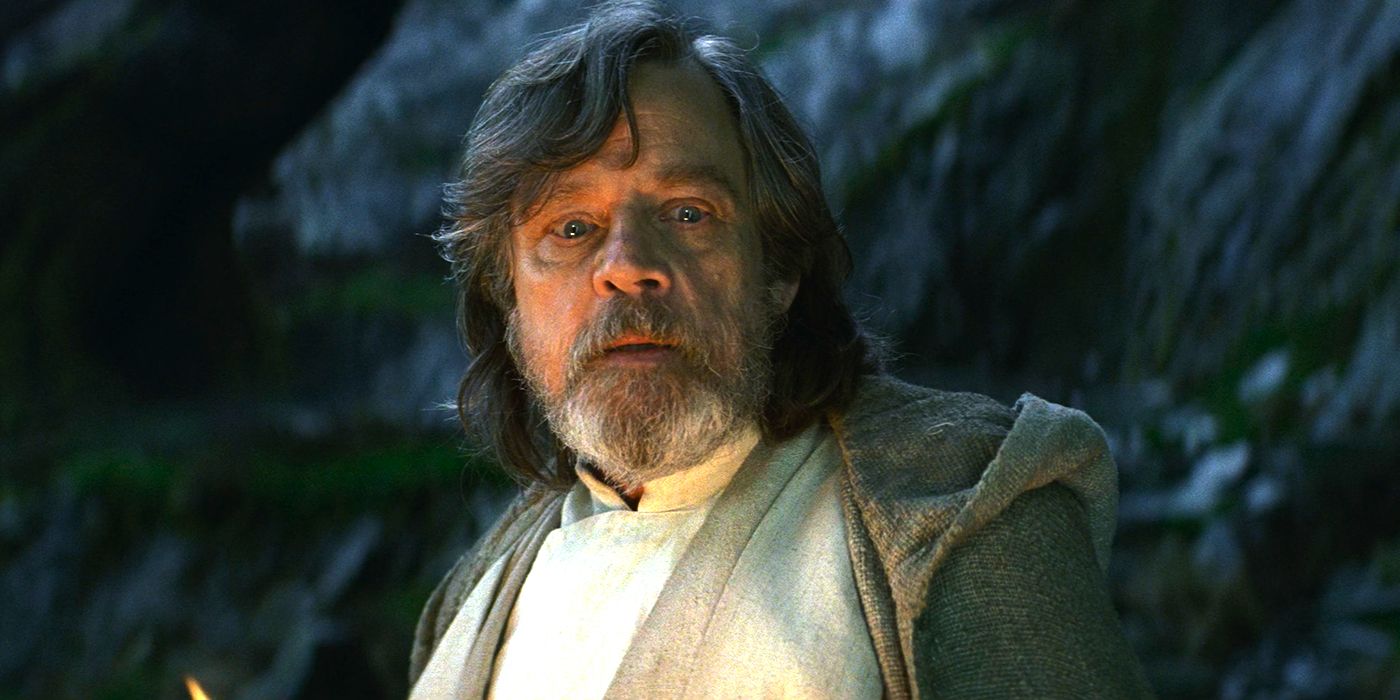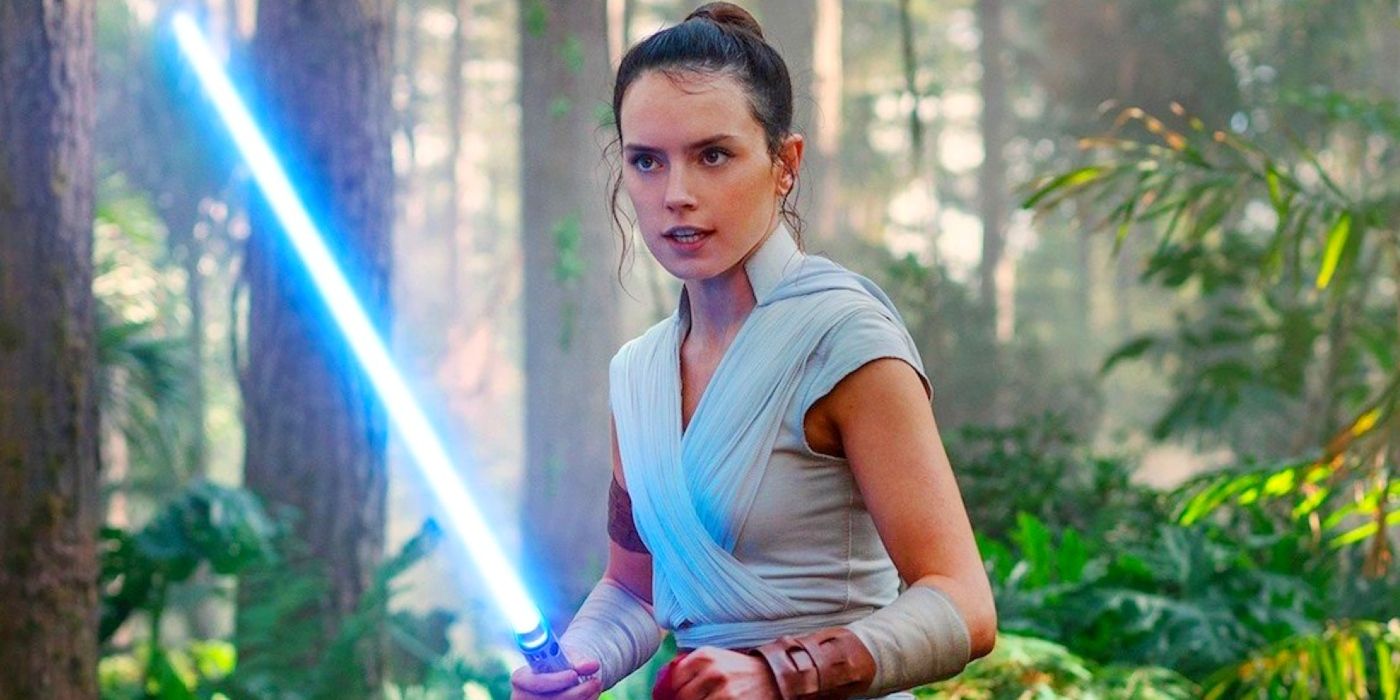Rian Johnson defends Star Wars: The Last Jedi again by explaining his approach to the ending. The eighth film in the Skywalker saga and the second in the Star Wars sequel trilogy, The Last Jedi continued Rey's (Daisy Ridley) story as she sought Luke Skywalker's (Mark Hamill) help with her Jedi training. However, she found a Luke far removed from the hero of the main trilogy, one who had renounced his responsibilities as a Jedi. Though Luke retired to a peaceful existence after becoming disillusioned with the Jedi way, he returned to the fray as a hologram by the end of Star Wars: The Last Jedi, sacrificing himself in heroic fashion to help Leia (Carrie Fisher), Rey, and the other members of the Resistance escape.
During a conversation with The Atlantic, Johnson details his approach to Star Wars: The Last Jedi, explaining that his interest in prioritizing an epic, satisfying ending was a major factor in the final product. With Johnson's self-proclaimed intention to "burn the Viking boat into the sea" with the finale of The Last Jedi, the conclusion of the Skywalker saga's penultimate film has additional context. Check out Johnson's full quote below:
“In terms of the Star Wars movie I did, I tried to give it a hell of an ending. I love endings so much that even doing the middle chapter of the trilogy, I tried to give it an ending. A good ending that recontextualizes everything that came before it and makes it a beautiful object unto itself—that’s what makes a movie, a movie. It feels like there’s less and less of that. This whole poisonous idea of creating [intellectual property] has completely seeped into the bedrock of storytelling. Everyone is just thinking, 'How do we keep milking it?' I love an ending where you burn the Viking boat into the sea.”
Johnson's The Last Jedi Intents Were Great - And Controversial
Johnson had a difficult balance to walk with Star Wars: The Last Jedi, charged with creating a unique and creative experience that still felt connected to everything that came before it while leaving the story incomplete. The intentions that went into Johnson's Star Wars: The Last Jedi approach - not sacrificing a film's quality for its sequel potential - are good, pointing to the creation of a well-crafted and satisfying movie. However, Star Wars: The Last Jedi was extremely controversial among viewers, with many fans of the franchise complaining that the penultimate sequel trilogy film didn't feel like a Star Wars movie and actively seemed to reject the rest of the franchise.
One of the major critiques of Star Wars: The Last Jedi by Star Wars fans was Luke's character arc, with audiences expressing disappointment with Luke's decision to reject the codes and scriptures of the Jedi and walk away from a fight in his old age. It didn't seem to line up with the heroic figure he was originally introduced as. Johnson's comments about the price of making many sequels ring true in this regard, since viewers were only frustrated by Luke's character in Star Wars: The Last Jedi because of everything that came before that film. Though Johnson wanted to establish Star Wars: The Last Jedi as its own, more self-contained work, this approach made the Star Wars sequel trilogy feel even more disconnected, which added to its criticisms.
Johnson's Sequel Comments Are More Relevant Than Ever
Despite the divisive nature of Star Wars: The Last Jedi, Johnson's point about sequels changing the experience of movies is extremely relevant to the Disney+ era, in which the Marvel Cinematic Universe and Star Wars have earned many more installments. Even outside of Disney+, the battle for intellectual property has seeped into every facet of storytelling as prequels, spinoffs, and sequels have become increasingly common, as seen with recent titles such as Top Gun: Maverick and Avatar: The Way of Water. While Star Wars: The Last Jedi can't escape its status as a sequel, Johnson's description of his approach contextualizes the reasons that the film infamously sought to subvert audience expectations.
Source: The Atlantic



